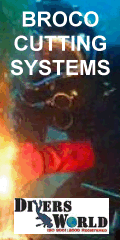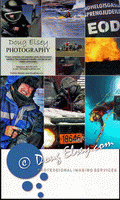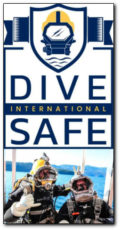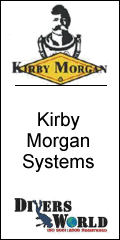One Country – One Dive Standard: Federal Govt pushes for harmonized Health and Safety across Canada.
By CADC Admin ~ December 20th, 2016. Filed under: CADC MAG, Press Release, Standards and Regulations.
(PrePrint: CADC Mag Winter 2016-2017)
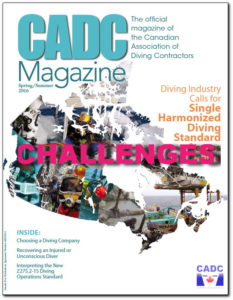 The quest by our diving industry to implement one single national diving standard across the country got a big boast this fall when Provincial and territorial labour ministers gathered for an annual meeting with federal Labour Minister MaryAnn Mihychuk in Prince George, B.C., in September 2016.
The quest by our diving industry to implement one single national diving standard across the country got a big boast this fall when Provincial and territorial labour ministers gathered for an annual meeting with federal Labour Minister MaryAnn Mihychuk in Prince George, B.C., in September 2016.
On the agenda was discussion for harmonization of health and safety standards across Canada.
British Columbia’s Labour Minister Shirley Bond said many companies do business across provinces and struggle to meet the unique health and safety regulations in each jurisdiction.
Bond said provincial ministers presented the federal government with a working plan of how to move forward on creating harmonized regulations.
Mihychuk said while they are looking at a two-year plan to unify standards, the governments want to speed up the process.
Compliance to one dive standard across the country AS A MINIMUM (especially in absence of regulations) insures a minimum level of safety in diving operations. Standards insure that there is continuity and standardization of safe operating procedures applied to all diving operations across the nation.
The Canadian Standards Association has for the last forty years been continually developing National standards for occupational diving and work in hyperbaric environments. The CSA Technical Committee responsible for these standards is comprised of a broad cross-section of industry representatives, subject-area experts, regulatory authorities, and other stakeholders. As such, these standards represent the consensus of the vast majority of stakeholders across Canada. They are recommended by CSA and its affiliates for recognition in all jurisdictions – both for inshore and offshore applications.
These standards are recognized by the diving industry in Canada and have been cited in many of the regulations in jurisdictions across Canada. However, the pursuit of applying them to the many different types of commercial diving operations in Canada has its challenges. Not all diving companies or underwater workers operate alike nor do they follow the same safety standards (if they follow any at all!).
Some older established dive companies operating in remote areas – and seemingly out of touch with the current industry practices – are oblivious to minimal and fundamental safety in operations. Most often, there is a misuse of SCUBA in their operations or lack of minimal dive teams. “We’ve always done it that way!” or “Our diving is different than yours.” is a common response when asked about why they don’t follow higher recognized safety standards. New divers – having been trained in schools teaching to CSA Diver Training standards (Z275.5) and with full awareness of current CSA Dive Standards – know better but in search of work and to keep their job, say nothing and do as they are told (knowing full well that it is dangerous.) These are the operations exposed to the highest levels of risk and most likely to experience an accident. It is a case of being out of touch to current industry practice.
Others dive companies – knowing that legally the regulation in their jurisdiction allow them to operate below a current standard because of the jurisdiction citing outdated standards – opt to use the regulation because they can and it is “legal” instead of the safer current standard. The reasons are purely economic (low bid!) and jeopardize the worker in compromising safety in favour of profit (or to get the job.) Different provinces can have different regulations or cite old and outdated standards in their regulations.
Responsible dive operators that embrace the CSA standards as a minimum and operate in accordance to the standards or a higher standard endorsed or dictated by the client. They do it right and need to educate the client as to why they operate this way by citing safety and efficiency and in protecting the client by utilizing recognized safety standards in accordance to the law to protect the worker. However, it is these operators that are sometimes penalized most in an open bidding process when they follow responsible safety in operations – only to be outbid by a contractor using lower safety standards, less crew and shoddy equipment not up to a recognized standard. The client – oblivious to diving safety standards and not realizing their legal exposure – simply sees the bottom line and picks the low bidder.
The adherence to different regulations and standards across the country is confusing and costly. Dive companies and clients – and all stakeholders in the industry – need to be educated to the existence and use of a single industry accepted standard of operation. In come cases, both dive companies and clients are naively unaware of the legal ramifications of protection of the worker’s safety as outlined in Bill C-45. It is a criminal offence NOT to adequately protect the worker on the job. Following recognized minimum dive safety standards mitigates this risk to all.
As an initial step in this education, CADC will be introducing a diving self-audit based on the CSA275.2-15 (Diving Operations) version of the standard for all member companies. The self-audit is essentially a check list of the pertinent sections of the standard that would specifically apply to their operations. Keep in mind that CSA Z275.2 standards – like all the diving standards in the Z275 group, is a MINIMUM standard. Members are encouraged in this initial phase to insure compliance to the latest standard as a minimum for their operations when regulations are weaker, not current or in effect. CADC members already are required – as a condition of membership – to follow CSA Dive Standards in the absence of regulations.
With the federal government expressing the will to study and move to harmonization of health and safety standards across Canada, the reality of one national standard could become a reality. It is not going to be an easy task, but once achieved it will make for a safer and more efficient diving industry.
But – like any standard or regulation – strict enforcement is key to making it work. A quote during a recent CSA Dive Standards meeting rings true – “ …It’s all politics for everyone except for the families of the deceased. …… there must be accountability by all industry sectors and regulators along with strict applied enforcement.”
We need to move beyond the politics to make this work. We need enforcement. We need positive participation in the spirit of dive safety and the protection of the worker. This is about everyone in our industry – or any industry – to have assurance that they work in a safe environment. It is the right to return home safe at the end of the day.
By Doug Elsey, P.Eng. Executive Director CADC.
